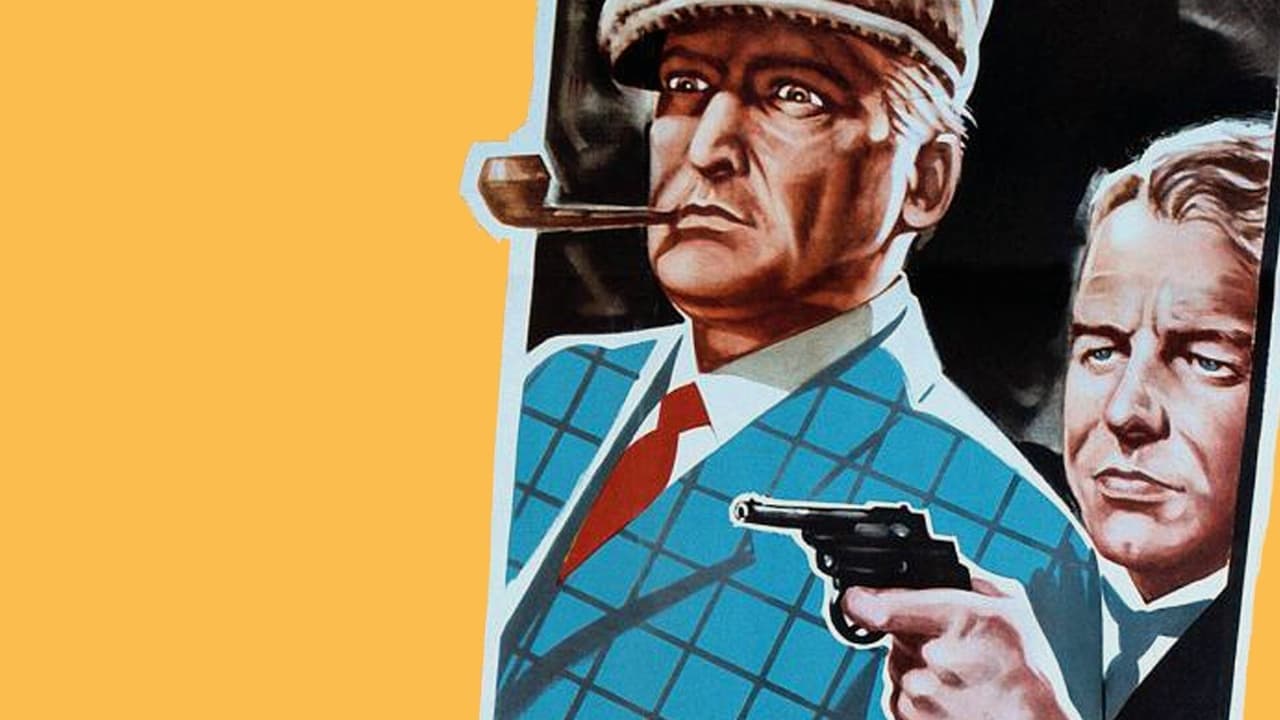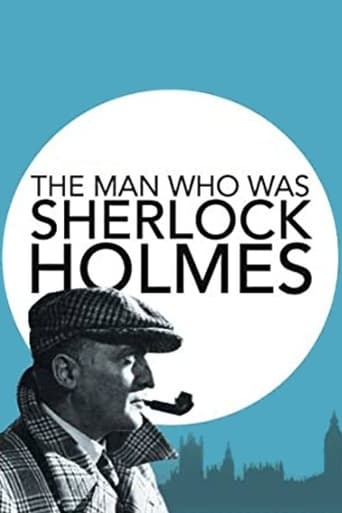



One of my all time favorites.
A bit overrated, but still an amazing film
I didn’t really have many expectations going into the movie (good or bad), but I actually really enjoyed it. I really liked the characters and the banter between them.
View MoreOne of the best movies of the year! Incredible from the beginning to the end.
View MoreFrom the beginning to the end, this is an absolutely enjoyable film. Not only thrilling and offering more than one good mystery to solve, and full of surprises from the first sequences to the very end, but also played by both Albers and Rühman with a good-humored touch that suits them perfectly and adds to this new look upon Holmes and Watson. Albers had been a comedian before his detective role in Der Greifer (1930) brought him movie fame, and was also a good singer with an easy style; and Rühman was known for these kind of roles and was an established comedian. Yet this is not strictly a comedy, but a merry detective mystery story.The story begins at night, when two men with a strange resemblance to Sherlock Holmes and Doctor Watson stop a train and board it in a hurry. Word quickly spreads amongst the staff and passengers, to a couple of crook´s despair. Their two compartment neighbours, orphaned sisters in their way to receive an inheritance, are to be met again by our not so disinterested heroes, adding a romantinc touch. And if Marieluise Claudius and Hansi Knoteck appear at first as simple charming young girls, their importance in the development of the events to come is more than it seems. When our heroes reach Brussels they soon get involved in trying to solve the robbery of the valuable Mauritius stamps at the World Exhibition. So don´t miss a detail and enjoy what´s coming.Only a couple of weak points : even if the Sidney Paget drawings decorating the opening credits become amazingly tuned into Albers´ image in the train magazine, Holmes is lean and angled, by no means that rugby-built type of man; and Watson is not at all a secondary reticent man but a true companion that has his own mind and intelligence, something that at least can be occasionally noticed in this film (so Rühman was luckier than Nigel Bruce). But that, of course, is part of the originality of this story. Conan Doyle, on his side, had nothing to do with the gaudy tipsy innkeeper type, being a serious-looking Scottish who instilled his characters with intelligence and subtle irony. Lacking this introverted sharpness both Arthur Wontner and Jeremy Brett amply displayed, Albers has his own strong personality that brings the character into his own without loosing his principles, nor the ones of his role for that matter. This is a film made in pre-war Germany, when things were getting difficult for a man (Albers) líving with the daughter of a Jewish actor and playwright and Rühman about to divorce his Jewish wife. It is a goal of the entire film crew that this is not noticed at all, offering us a highly entertaining, witty and impeccably timed story that has retained its qualities through the years.
View MoreThis would actually be a more fitting title for "Der Mann, der Sherlock Holmes war" or "The Man Who Was Sherlock Holmes" or just "Sherlock Holmes" as this is the man that this 105-minute German black-and-white film from 1937 is about. It will have its 80th anniversary next year and if you know a bit about German political history, you will know immediately that this film was made during the Nazi reign by writer and director Karl Hartl with co-writer Robert Stemmle, an experienced filmmaker himself. I am not familiar with any of the supporting players, but the two lead actors are among the most famous Germany had to offer in the 1930s and also decades after that, namely Hans Albers as Holmes and Heinz Rühmann as Watson. Or I should better say as the men pretending to be this famous detective duo. While they had pretty solid chemistry and I was buying their portrayal of good friendship, I must say that I was not too convinced by this film overall. The script just wasn't good or interesting enough. Then again, it may have hurt my perception a but that I am generally not the biggest Sherlock Holmes fan (especially not of the bad portrayal by Cumberbatch and Freeman) and if these two here (Albers, Rühmann) cannot get me interested in the subject, then maybe nobody can. I also felt that the writers wanted to be too smart at times as the plot twists seemed forced and uninteresting and the film is at its worst when it tries to be dramatically relevant, which is especially at the very end. There is no doubt that Albers and Rühmann have the talent, but in this case the writers did not or at least they did not deliver accordingly. I do not recommend this German take on Sir Arthur Conan Doyle's legendary character. Thumbs down.
View MoreTwo men, when mistaken to be Sherlock Holmes and Dr. Watson, quickly accept the benefits of the mistaken identity, only to later be saddled with some of the responsibilities as well. Watched on DVD in German with English subtitles.This film was enjoyable on many different levels...As a comedy, the humor is subdued, but well done.As a mystery, I was kept guessing as to character motivations as well as the story's final outcome, until the very end.As an adventure, there is a nice build up to a climactic scene where the main characters are facing certain doom at the hands of villains. And as Nazi propaganda, it is so subtle and well done that neither of the other reviewers to date have recognized it. (One said there is no propaganda and the other says the British are portrayed as criminals, which I suppose is technically correct, if you can see propaganda in having English criminals in a story set largely in England.) The propaganda comes from the perspective of Germans being the master race, superior to all others. The only character in the film specifically identified as German is the young boy who has walked from Berlin to attend the exposition where valuable stamps are on display. German superiority is shown as the young boy walks across Europe unassisted, recognizes the stamps as forgeries (a fact missed by the experts from other countries), and is the one who validates the real stamps when they are recovered in the end. The British are not only too dumb to recognize the forgeries, but too foolish to even know that there is no Sherlock Holmes in real life,... that Holmes and Watson are fictional characters. (This fact gets brought out in the end.)Germans watching this film in 1937 got a subtle reinforcement of their superiority over all others, without interfering with a good story.I recommend catching this film if you get the chance. From any of the perspectives above, you get a well done film.
View MoreHans Albers & Heinz Rühmann are at their very best in this hugely entertaining film. Albers & Rühmann pretend to be the famous duo Holmes & Dr. Watson and the police, the gangsters and the girls believe them beyond any doubt. The direction is so smooth and has the best of comic timing as any Lubitsch film might have. Even today, the film has not lost it's tempo, witt and adventures style. Whoever thinks, German film makers only made propaganda pictures during the dictatorship, are dead wrong. Try to get a VHS copy, sit back and be drawn into the hillarious adventures of THE MAN WHO WAS SHERLOCK HOLMES.
View More